By: Chiara Beretta
Photos by: Yasuyuki Shimanuki, Austin Hopkins
By: Chiara Beretta
Photos by: Yasuyuki Shimanuki, Austin Hopkins
It doesn’t matter where you come from or what language you speak-when you share the same passion for skiing and snow, it doesn’t take much else to create a deep connection.
This is what
Lexicon
, the short film directed by Austin Hopkins and Loïc Isliker with support fromArc’teryx. Indeed, it could be said that this was the discovery made by the crew during the filming that took place in Japan, on the dusty snow-covered slopes of Hokkaido Island.
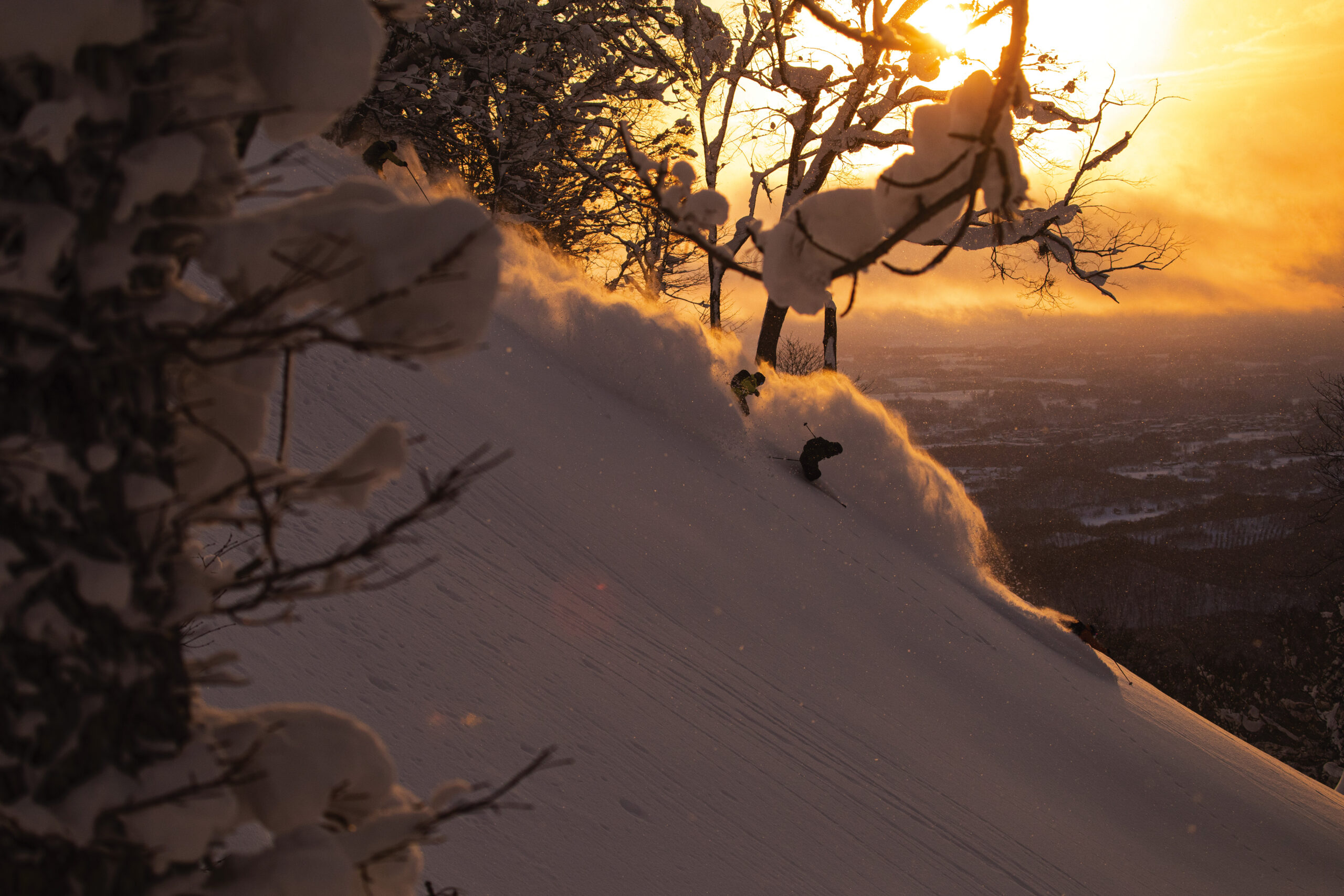
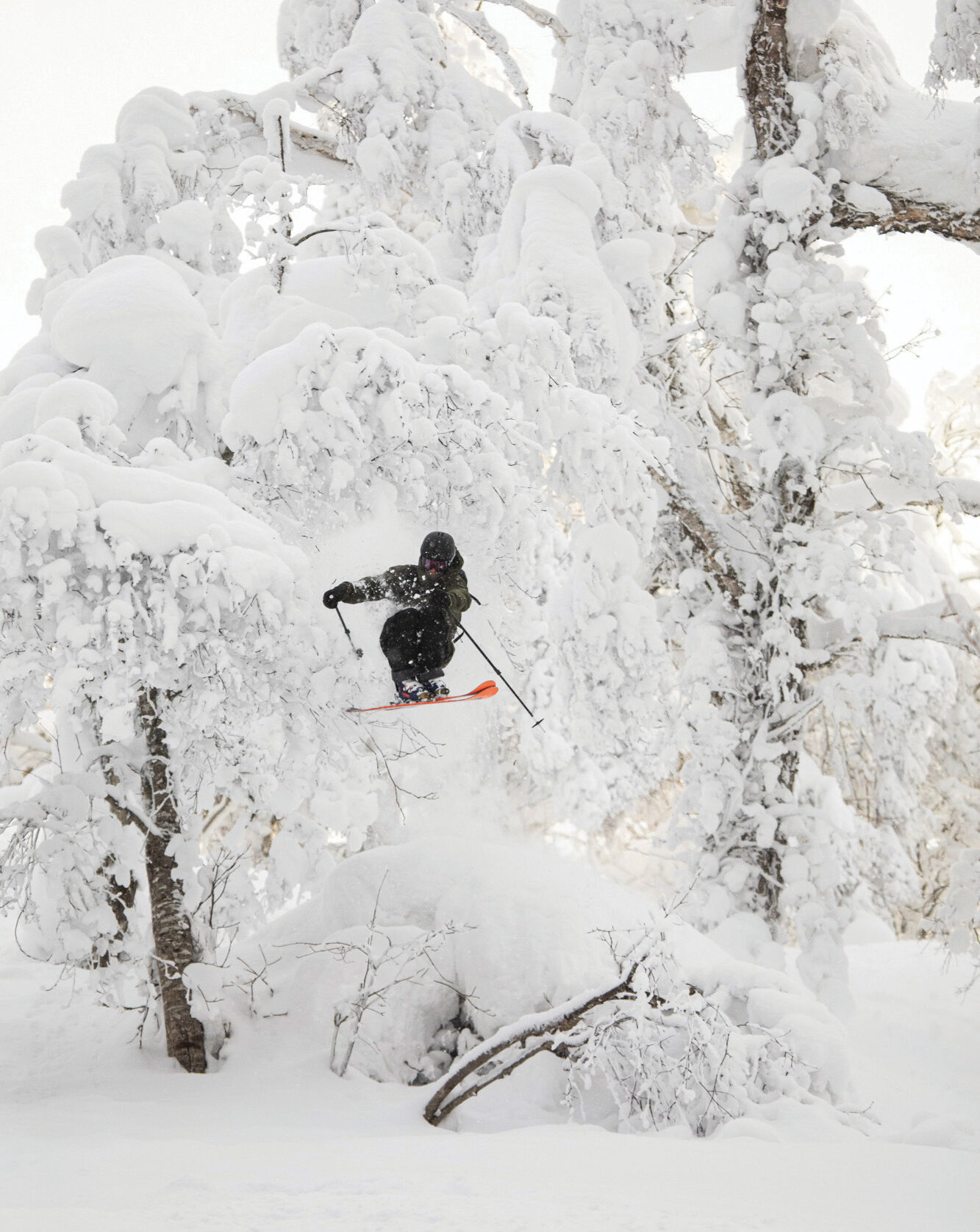
Hopkins, from the U.S., and Isliker, from the Netherlands, brought together for the project an international crew of skiers including Tom Peiffer from Canada, Edgar Cheylus from France, Maude Besse from Switzerland, Stinius Skjøtskift from Norway, and Taiyo Nakanishi from Japan. Plans for the short originally differed, but in the process it was inevitable to turn our attention to this curious variety of languages and cultures united in the search for the perfect
Japan pow (or Japow)
.
“Austin at the airport in Tokyo noticed that we all had different passports. We had never seen so many different ones stacked up,” says co-director Loïc Isliker. As the days went by, the theme of linguistic diversity and how this was translated into skiing ended up changing the direction of the entire project. “The biggest surprise for me was that the film we came home with from Japan was completely different than the one we proposed to Arc’teryx to get their support,” confirms co-director Austin Hopkins. “Toward the end of the trip I had the idea to explore the topic of language and the challenges we faced because of cultural barriers, but always using skiing as a catalyst for connections between people.”
Why do you think skiing has this ability to foster connections between people?
Loïc Isliker: I think it’s because skiing can give you so much joy that when you meet other skiers you just want to share and express that same feeling with them. Most of the time this feeling goes hand in hand with a love of nature and being outdoors. Right away, therefore, there are many common interests. Beyond that, simply sharing the same passion with others is also great and makes you go completely into nerd mode.
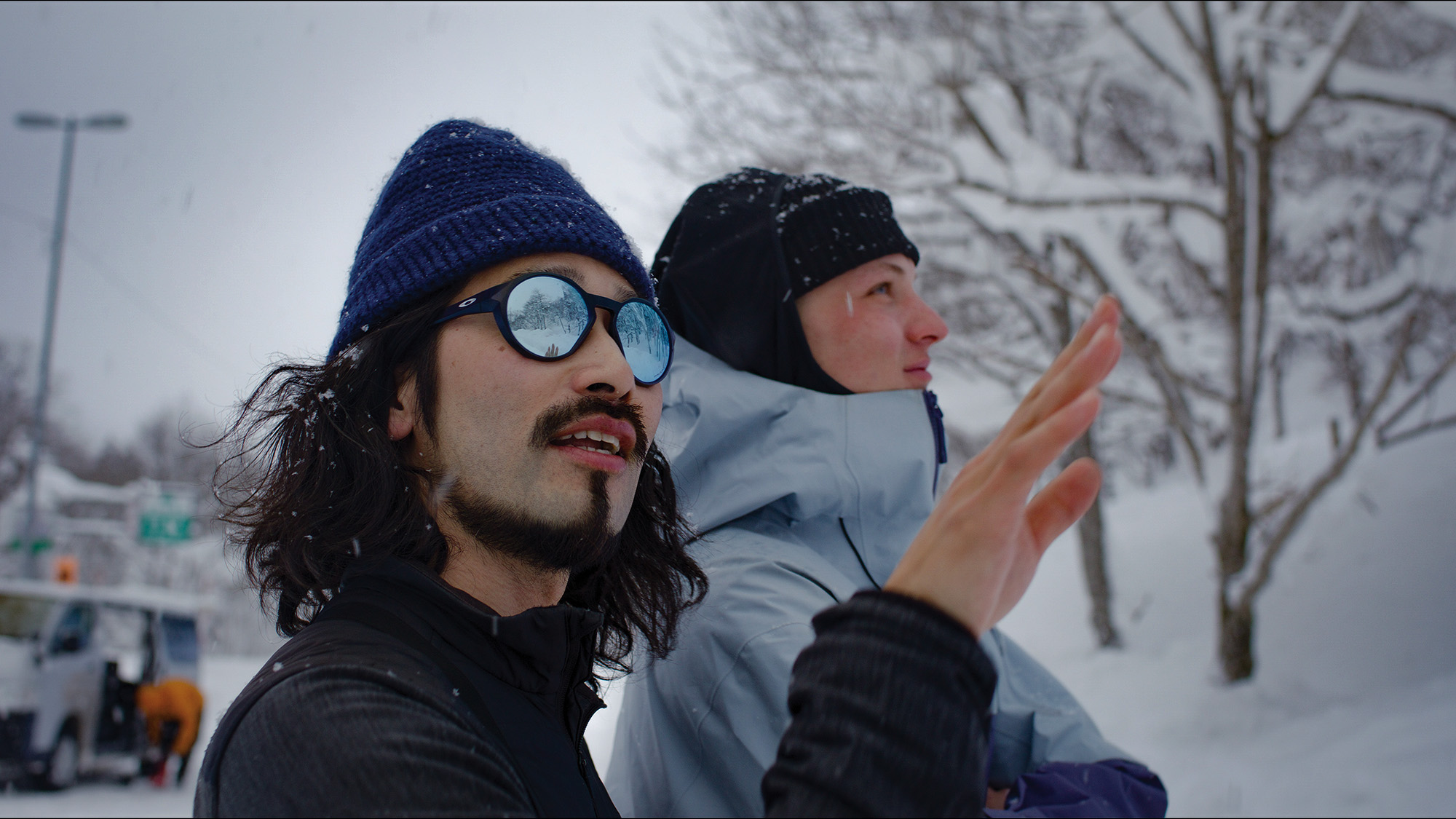
How did you choose the skiers you involved in the project?
Loïc: We are all good friends and get along very well. As far as I am concerned, an important part of the film was also to show the fun and friendly atmosphere. I was confident that with this group we would succeed. Besides that, most of us had never been to Japan, so I was sure that we would have the feeling of exploring a new culture all together as a group, and that is also a crucial element of the film.
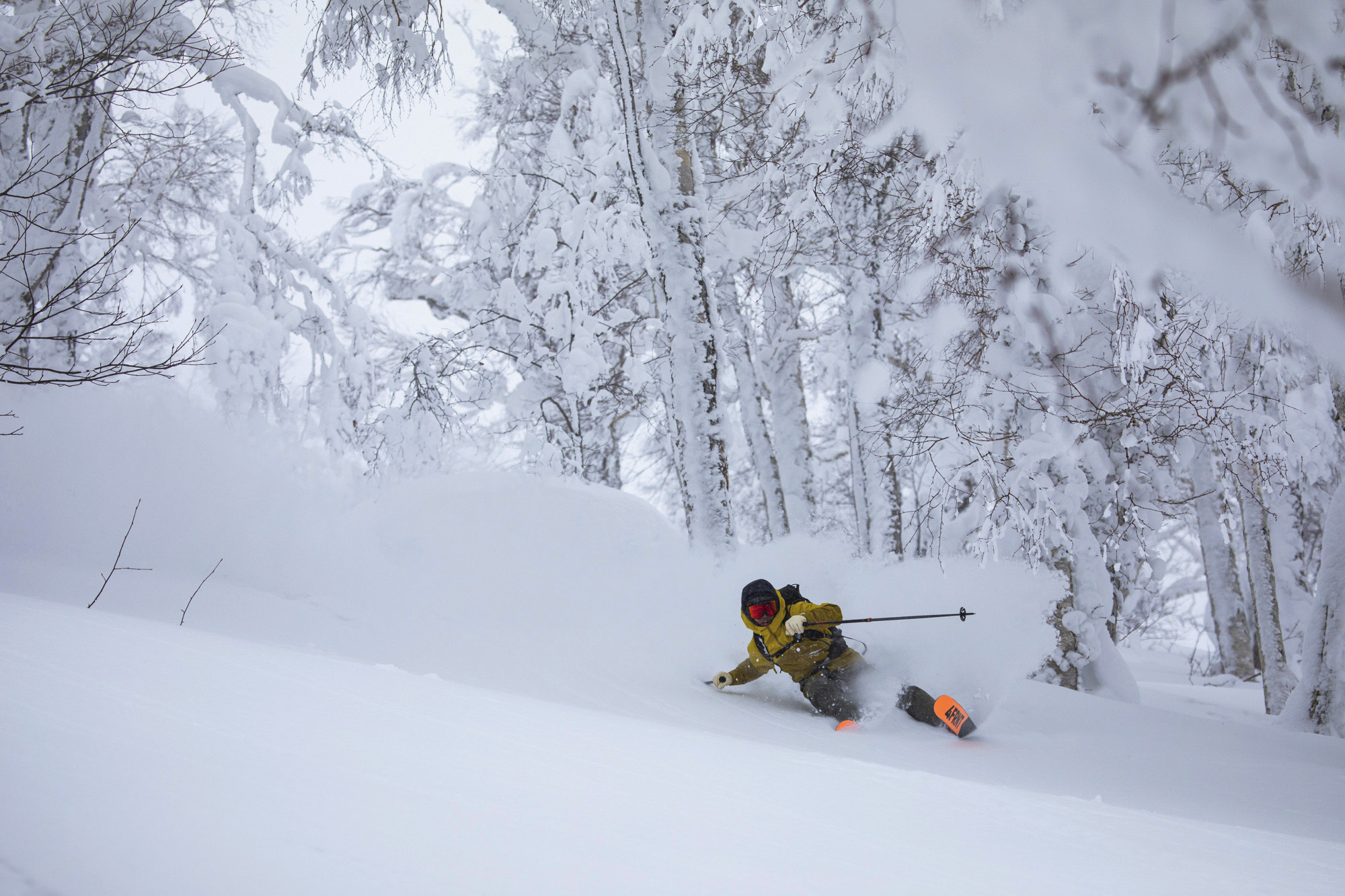
How did you handle language barriers in the group?
Austin Hopkins: We were fortunate to have a contact in the field, local photographer and producer Yasuyuki Shimanuki, who stayed with us most of the trip and spoke amazing English. It would have been complicated to work with Taiyo (Nakanishi, ed.) without Yasu’s translation. Among the athletes, there were definitely times when it was difficult to engage Maude and Edgar because we were all trying to communicate the essentials in English. Fortunately, however, Loic Isliker is fluent in both French and English; therefore, he was able to translate and help a great deal. Another major challenge with the many languages of the crew was communication via radio. When we shoot skiing and action sports, we depend a lot on the use of radios/walkies, and if there are problems with communication, talking to each other at a distance, sometimes we miss opportunities for good light, snow, timing, and so on. In the end, we solved it by working at closer distances so that we could avoid having to use only the radio.
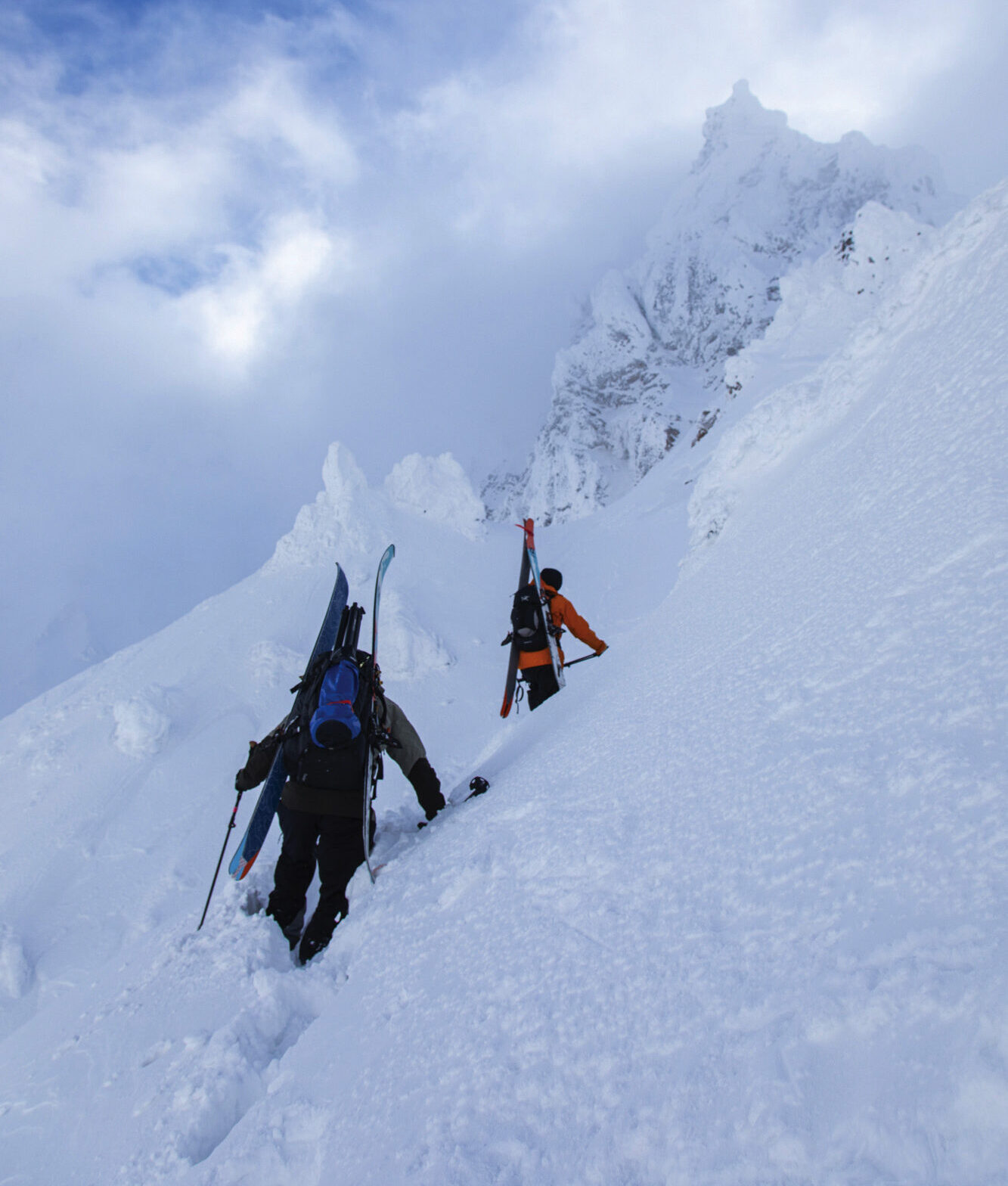
Beyond the change in the theme of the film, what surprised you most about the experience?
Austin: A big surprise was the day near Mount Tokachi, which is seen in the film. Finding a sunny, cold and stable near-perfect day at high altitude in mid-January is quite rare in Japan. We were lucky and got some amazing shots that contrast well with the classic deep snow shots that characterize the film. I was also surprised by how easy it was to orient and travel in Japan. It is such a warm and welcoming culture that made us feel at home from the moment we arrived!
By the way, why Japan of all places?
Loïc: Well, skiing in Japan is any skier’s dream. It snows so much there, I really wanted to see it in person. The idea of having so many powder days is a dream. Snow aside, the culture also interested me a lot, I was curious because I had always heard that it is different and special.
Is there any funny behind-the-scenes anecdote you would like to share?
Loïc: Every morning before we started filming we would stop at 7-Eleven to get lunch and snacks to take to the mountains. At first we were overwhelmed by the variety of different foods and snacks, but after about a week we knew exactly what to get and started trying all these particular snacks. This moment really became part of our routine and was always fun.
Austin: It’s probably quite common in many crews going to Japan, but definitely the routine of looking forward to breakfast, snacks, and lunch at 7-Eleven! Really, we went to bed every night dreaming about what we would get the next morning. So many desserts, coffee, soft drinks, sandwiches, gyoza, sushi … All food of higher quality than at any other gas station in the world. I also have many funny memories of us laughing like crazy and screaming with joy whenever any of us made the perfect turn in the Japan pow. It’s hard to describe the feeling of tackling a bottomless turn in deep snow while it’s snowing a lot and you’re with your friends on the mountain! Great group, great trip, great experience.
Ultimately, what is the message you want to convey with the short film?
Austin: I believe that sharing on a human level the experience of traveling and skiing with your friends is just as important as the conditions, weather or filming, if not more important. With “Lexicon” we wanted to bring attention to the variety of languages that our crew spoke, and with which they occasionally struggled, and to the fact that it doesn’t matter what language you speak or where you come from: we can all communicate through skiing.
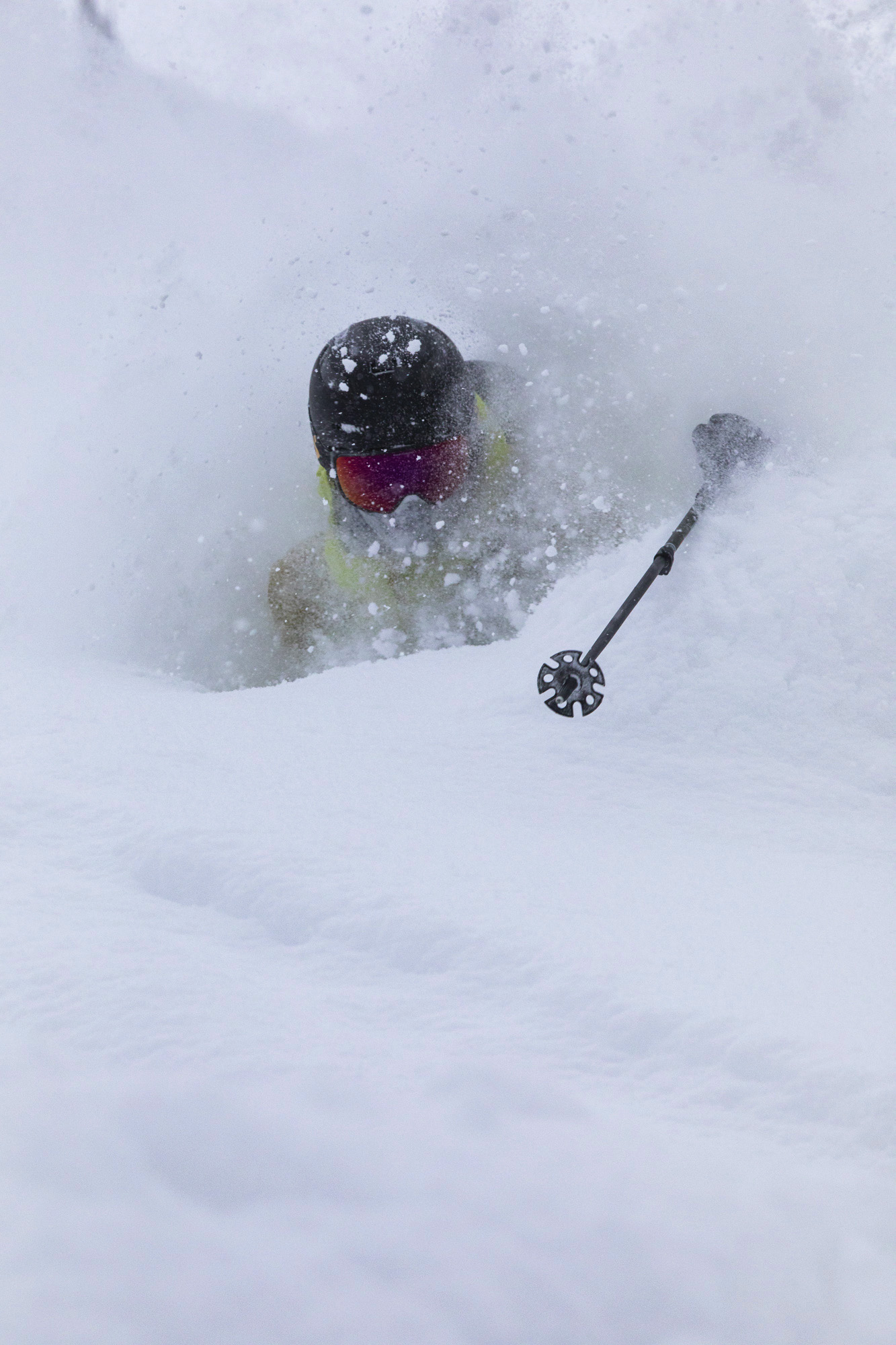
Speaking generally, does a film about skiing in your opinion have to have some meaning or can it simply be about beautiful lines to ski?
Austin: It is fun and interesting to see what the world of action sports and snow movies has evolved into. There is a lot of great content around and beautiful stories are being told. I personally believe that ski films should not be just one thing. That would be really boring. There is definitely a time and place for films that are totally A+ action and unique montages, but there is also room for films with cinematic themes and epic storytelling that may or may not make a lot of sense to a certain type of audience. But this is the industry. Everyone skis differently, everyone moves differently, and everyone comes from a different background, so why not have a content pool that reflects this variety?
Loïc: Ski movies with lots of snow action and beautiful lines are certainly wonderful to watch, but for me they can quickly become quite boring. As far as I am concerned, ski movies ideally should have good skiing, a story/adventure, and a creative twist. After viewing, the viewer should not only think “oh, what spectacular skiing,” but also somehow feel inspired. From a new culture that saw for the first time, for example, or how athletes managed to ski the mountain of their dreams. The ski action does not have to be the most extreme or the best ever, but there should be a story. Beyond that, I think you can capture people’s attention creatively, for example through music or a particular shooting style. In my opinion as long as the viewer after viewing remains in a bit of a “trance” and feels the mood of the film, then you have done a very good job.